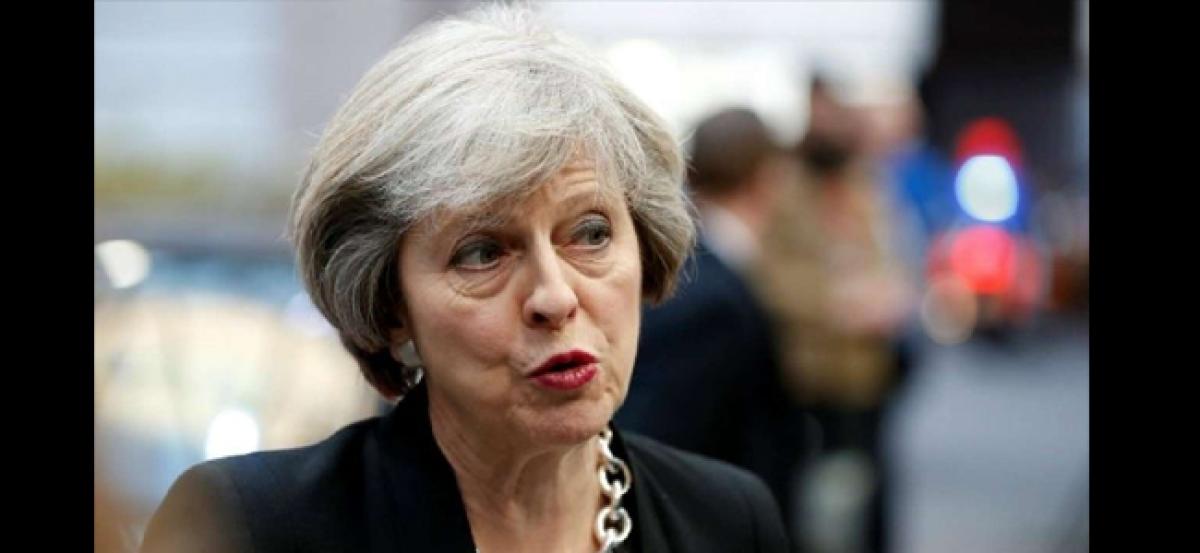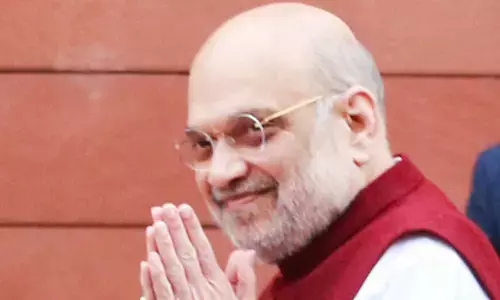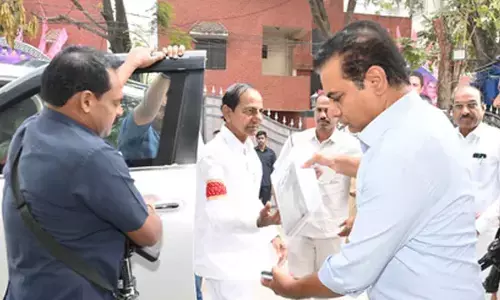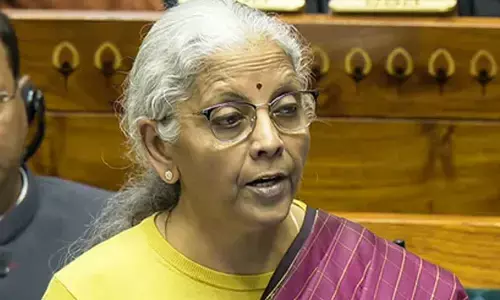British PM Theresa May gets new customs idea as party bickers over Brexit

British Prime Minister Theresa May\'s advisers have come up with a new proposal for handling customs with the EU after Brexit as lawmakers in her party bicker before of a crunch meeting of senior ministers on Friday.
British Prime Minister Theresa May's advisers have come up with a new proposal for handling customs with the EU after Brexit as lawmakers in her party bicker before of a crunch meeting of senior ministers on Friday.
With less than nine months left before the country leaves the European Union, little is yet clear about how trade will flow as May is still trying to produce a customs plan that her divided Conservative Party can agree on.
May, who leads a minority government dependent on the support of a small Northern Irish party, has ruled out staying in the EU customs union, which groups EU members in a duty-free area where there is a common import tariff for non-EU goods.
So far, May's advisers have come up with two options, neither of which have the full support of her party.
As EU negotiators await the long-delayed proposal from London, the BBC reported that British officials have come up with a third model, though no details were immediately available and May's office declined to comment on the report.
May will gather the squabbling ministers at her Chequers country residence on Friday for an "away-day" aimed at agreeing the contents of a "white paper" policy document.
Brussels has pre-emptively poured scorn on both concepts raised so far by the government. Under one, Britain would collect tariffs on imports from outside the bloc on the EU's behalf. The other would implement a technology-based plan.
CLIFF EDGE?
Under the current timetable, both London and Brussels are working towards a final Brexit deal in October to give enough time to ratify it by Brexit day in March 2019.
In a sign of just how worried big business is getting, Siemens, Airbus and BMW have publicly cautioned Britain in the past month that their businesses will be hurt by a disorderly Brexit.
A record 75 percent of major British companies are now pessimistic about Brexit, a survey showed on Monday, highlighting weak investment and waning expectations for sales.
When asked about business worries by ambassadors, British Foreign Secretary Boris Johnson was reported by The Daily Telegraph newspaper to have quipped: "F*** business". A spokesman disputed that he had used bad language.
May has so far shown some skill at keeping her dual negotiation with the EU and her lawmakers on track, though the 30-year schism inside her party over Europe helped to sink the premierships of Margaret Thatcher, John Major and David Cameron.
More than 30 Conservative lawmakers have signed a letter demanding May "get tough" in negotiations.
"Our departure must be absolute," the lawmakers said. "We must not remain entangled with the EU's institutions if this restricts our ability to exercise our sovereignty as an independent nation. Anything less will be a weakening of our democracy. Britain must stand firm."
Lawmaker Jacob Rees-Mogg, who heads a pro-Brexit faction, pressed May on the type of Brexit she should seek, setting out what kind of deals lawmakers would reject."Any attempt by the EU to impose its laws and Court on the UK, either directly or indirectly, must be rejected," he wrote in the Daily Telegraph.
The article drew a rebuke from Alan Duncan, a Foreign Office minister, who said he was being insolent. "Lecturing and threatening the PM is just too much," Duncan said on Twitter. "Risks debasing govt, party, country & himself. PM must be given maximum latitude & backing."














